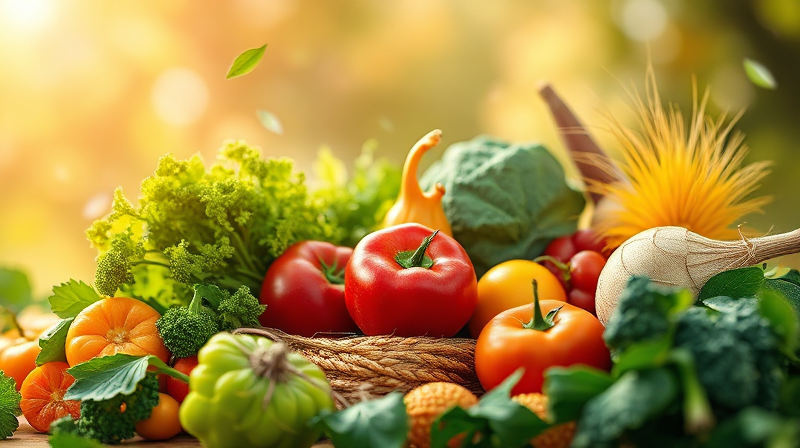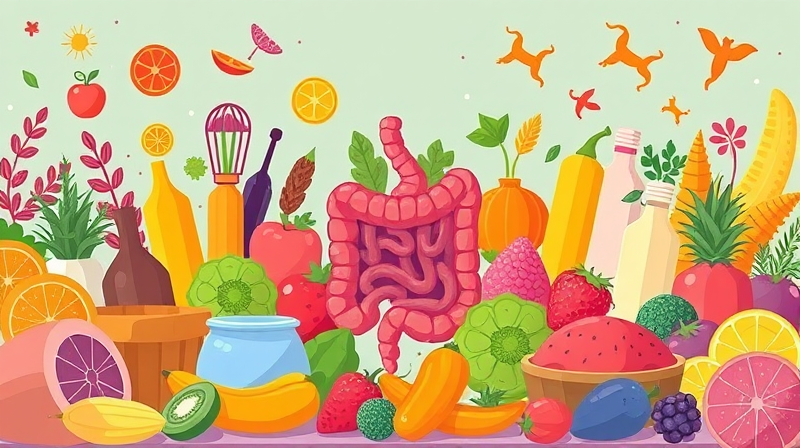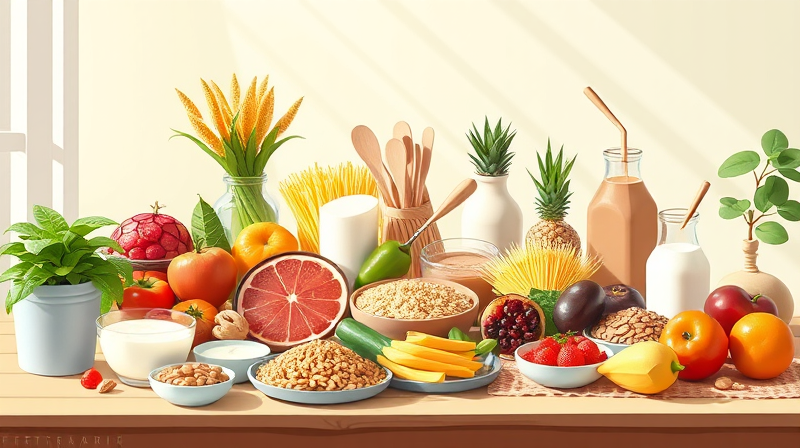Sustainable eating is not just a trend, it is a lifestyle that reaffirms our commitment to personal health and the planet. As we move into 2025, the evolving food landscape offers inspiring opportunities to embrace dietary habits that foster ongoing vitality and environmental stewardship.
Many experts now emphasize that healthy living is intricately linked with our food choices. Transitioning to a sustainable eating framework creates a cycle of benefits—enhancing personal wellness while contributing to better environmental outcomes. The latest dietary guidelines and innovative food practices are paving the way for a balanced, eco-friendly lifestyle.
The Shift Toward Plant-Based Proteins
A major pivot in the 2025 Dietary Guidelines Advisory Committee recommendations is the focus on plant-based proteins over traditional animal proteins. This change is driven by emerging research that supports the health benefits of a more plant-centered diet and its positive impacts on the environment.
To put this into practice, consider such simple yet effective strategies:
- Prioritize beans, peas, lentils, nuts, seeds, and soy products in your meal planning.
- Strive to include at least 2.5 cups of beans and legumes each week.
- Reduce your consumption of red and processed meats to help lower your dietary carbon footprint.
This approach not only supports your health by fueling your body with nutrient-dense foods, but it also promotes a more sustainable food system by reducing reliance on resource-intensive animal agriculture.
Embracing Whole Grains and Minimally Processed Foods
The dietary guidelines now advocate for the use of whole grains rather than refined grains. Whole grains are high in fiber, vitamins, and minerals, making them a cornerstone of a balanced diet.
For an effective sustainable eating framework, consider the following adjustments:
- Choose options that are mostly whole grains to maximize nutrient intake.
- Focus on minimally processed foods derived from plants for better nutrition.
- Be cautious with ultra-processed foods, even though specific guidelines for these are still evolving.
By making these changes, you not only enhance your overall wellbeing but also support food practices that are environmentally responsible.
Adopting a Flexible Dietary Pattern
The "Eat Healthy Your Way" framework introduced in the recent guidelines encourages flexibility while upholding core nutritional principles. This customizable approach allows you to integrate healthy habits into your unique lifestyle and cultural preferences.
Key benefits of this approach include:
- Customization: Adapt your meal plans to suit your tastes and lifestyle.
- Inclusivity: Incorporate various nutrient-dense foods from multiple food groups.
- Practicality: Easier adoption of plant-based choices with room for traditional foods.
This flexibility is vital for long-term adherence and creates a practical framework that encourages continuous improvement in your eating habits.
Incorporating Sustainable Food Practices
Beyond individual food choices, sustainable eating mandates an awareness of our broader food systems. By integrating sustainable practices, you help support agricultural innovations and contribute to environmental conservation.
Consider these sustainable food practices:
- Support regenerative agriculture that restores soil health and enhances biodiversity.
- Select foods with lower environmental impacts, particularly those grown using sustainable methods.
- Opt for locally sourced ingredients to decrease transportation emissions and support community economies.
Each choice you make reinforces a sustainable framework that benefits both you and the planet.
Leveraging Technology for Informed Choices
Technology is playing an increasingly important role in helping us make sustainable, informed decisions about our diets. With the advent of state-of-the-art carbon tracking tools, it is now easier to understand the environmental impact of different foods.
Make the most of technology by:
- Using machine learning-based carbon tracking tools to assess food options.
- Choosing products that provide transparent information about their sourcing and carbon footprints.
This digital revolution empowers you to make choices that are both healthful and ecologically responsible.
Balancing Nutrition and Portion Control
The latest guidelines stress the importance of portion control, especially for energy-dense and nutrient-poor foods. Mindful eating is central to maintaining a healthy weight and nutrient balance.
Integrate these tips into your meal planning:
- Select smaller portions of high-energy foods that lack nutritional value.
- Adopt pre-portioned meals to ease the challenge of consistent healthy eating.
- Pay close attention to serving sizes when dining out to avoid overconsumption.
Adhering to portion control can have a profound impact on your overall nutritional health, making sustainable eating simply more enjoyable and rewarding.
Exploring Innovative Food Options
The food industry continues to innovate, introducing exciting alternatives that align with sustainable eating practices. New options like lab-grown meat and novel plant-based proteins are emerging as viable choices.
Here are some innovative food choices to explore:
- Lab-grown meat alternatives: These may soon become mainstream, offering benefits by reducing the reliance on traditional animal farming.
- Novel plant-based proteins: Options such as seaweed-based and fungi-derived proteins are gaining recognition.
Exploring these options provides an opportunity to support cutting-edge food technologies that promote a sustainable future. By staying open to innovation, you continue to expand your sustainable eating framework and enjoy the benefits of a diverse, nutrient-rich diet.
In conclusion, embracing sustainable eating is a powerful journey towards personal health and a healthier planet. The integration of plant-based proteins, whole grains, flexible eating patterns, and sustainable practices paves the way for ongoing vitality. Remember that every small change counts as you contribute to a broader movement for environmental sustainability and improved public health.
Empower yourself with knowledge, remain open to innovation, and enjoy the process of developing a personalized, sustainable eating framework that is both inspiring and transformative.








